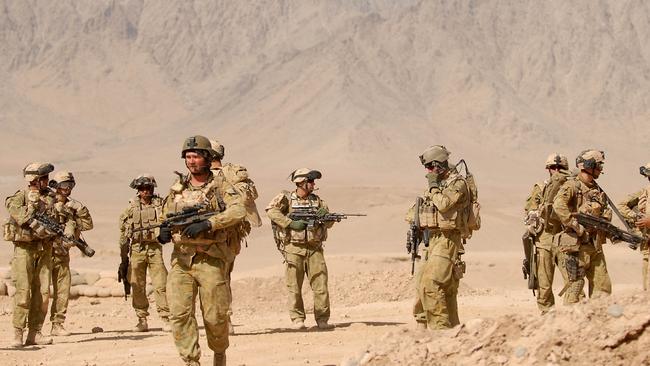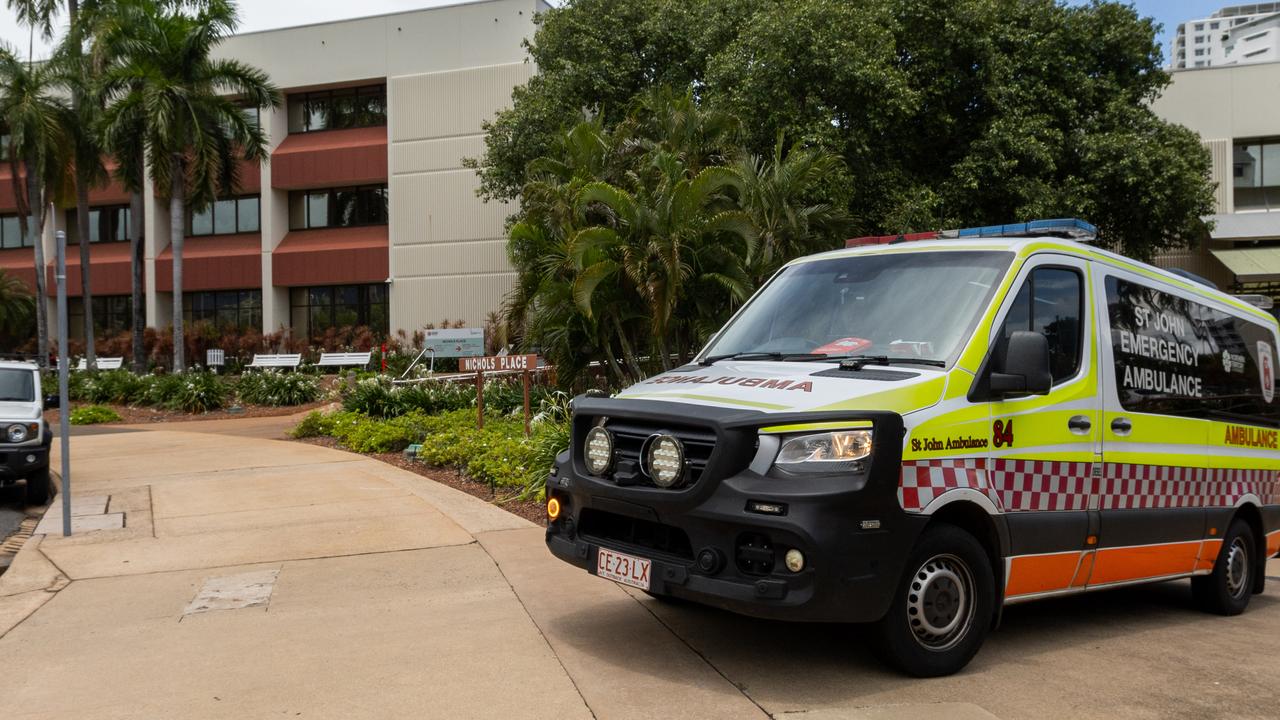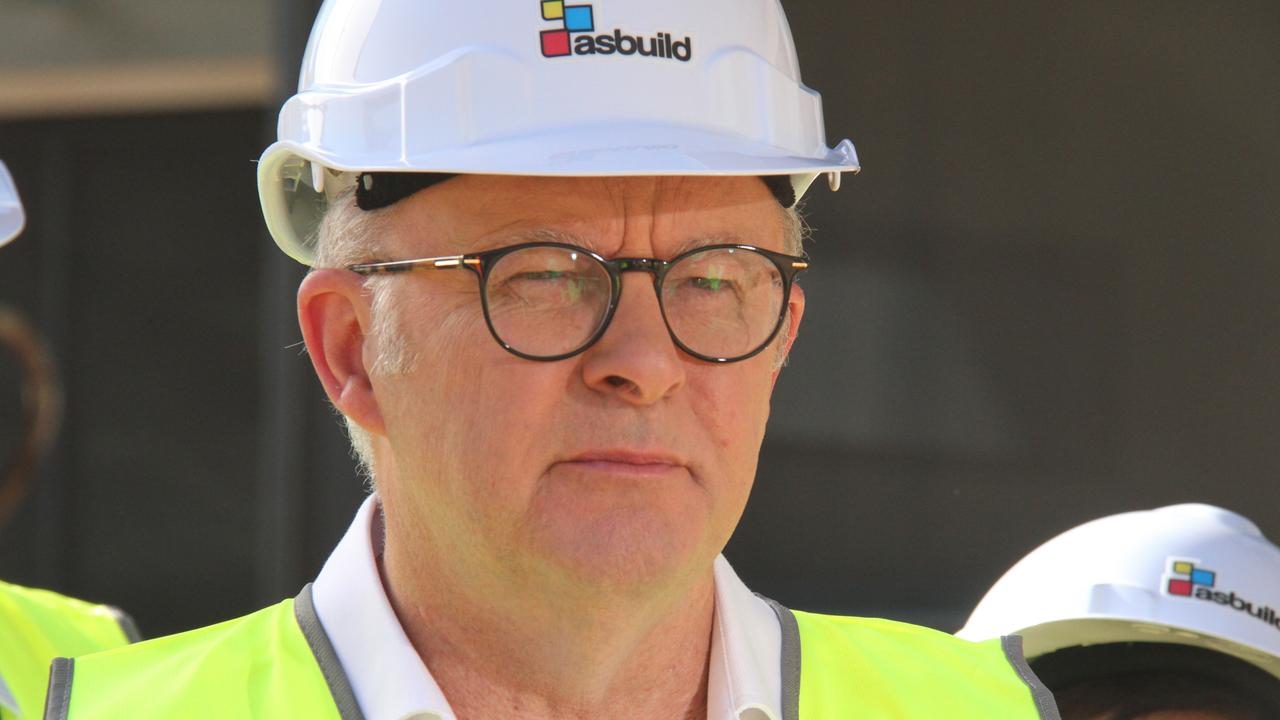Top End Veterans fighting battle to get help for post-traumatic stress disorder
IRAQ veteran Alex Kaczmarek knows personally how PTSD can drag veterans into what seems like an inescapable living hell

Northern Territory
Don't miss out on the headlines from Northern Territory. Followed categories will be added to My News.
IRAQ veteran Alex Kaczmarek knows personally how PTSD can drag veterans into what seems like an inescapable living hell.
For eight years he felt as if he was losing the battle against post-traumatic stress disorder, depression, anxiety and suicidal thoughts until, thankfully, he found help.
But now he has another battle on his hands.
As a veteran support officer at the Northern Territory Veteran Centre, Alex is fighting to get Top End veterans the mental support they need.
He said he saw servicemen and women struggling on a daily basis.
With permission from those involved, he has shared his experiences from just one week at the veteran centre.
“On a Monday morning I opened up the office, I was the only one in there,” he said.
“A bloke rocked up unannounced and walked through the door and said ‘I’m going home to blow my head off’.
“You sort of go, ‘OK, you better sit down and have a cup of tea mate’.
“And you go through the drills (to get the person help). When you’re put in that position you’ve got to think quick on your feet, because you’ve only got one chance at it.
“Two days after that I had a bloke come and see me. I know him, I actually served with him.
“He came out and told me he was going to hang himself.
“Again you go through the drills, but you can’t prepare for when someone says something like that and you know they mean it.
“The very next day a bloke came in to see me and, just during general conversation, he dropped it and said, ‘I’ve got a noose already tied up at home ready to go if things get any worse’.
“You go through the drills again. That’s just over a four- day period.”
Alex said the mental and physical exhaustion associated with PTSD was often what drove people to take their own life.
“Your body is always ticking over, your mind is like a computer hard-drive that never stops uploading,” he said.
“You’ve got the anger (that) usually comes because you don’t know what to do with the adrenalin. The lack of sleep, the breakdown in relationships, it just leads from one thing to another, to another and it’s draining, it’s so draining.”
And in the Top End, veterans have almost nowhere to turn to for help.
“There are zero mental health facilities in Darwin,” Alex said. “We have one of the highest ADF contingents per capita in Australia, yet we have no mental health facility.
“We can send them out to the Cowdy Ward (at Darwin hospital) where they’re kept for five days and their bags are packed and they’re pushed back out the door again. Veterans are killing themselves for reasons that could be fixed.”
Alex said while he didn’t blame the Australian Defence Force for servicemen and women developing PTSD, he was furious at the lack of government support.
“It goes beyond human nature to not be upset by the current situation, the lack of resources, the lack of people willing to stand up and fight for these resources,” he said.
“We’re not talking billions of dollars here – we’re talking small mental health institutions or facilities (in Darwin).
“If you’re going to send (people) out to kill people, you’ve got to look after them when they get home.”
Alex encourages veterans to educate themselves about PTSD symptoms and get help immediately. He said soldiers need to understand that having a “traumatic brain injury or a mechanical failure in the brain” was as normal as breaking an arm or needing a shoulder reconstruction.
“(Veterans) need to know what the early warning signs are and that it’s OK to come forward (and ask for help) without being victimised or bastardised for it,” he said. The longer you put off treatment, the harder it is to be rehabilitated.
“The implication of hiding it for a long period of time is, when it does come out, it usually comes out in a big way.
“I can think of dozens and dozens of soldiers who have hidden it for so long and, eventually, it comes out and their marriages break down, they lose their houses, they lose their jobs, they fall into the same situation I fell into.
“If you’re scared to tell your hierarchy, seek support outside the military.”
For confidential support call the Northern Territory Veteran Centre on 0475 381 269, Lifeline on 13 11 14 or the Defence All Hours Support Line on 1800 628 036


